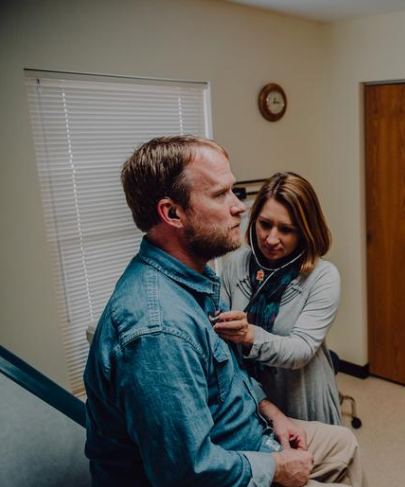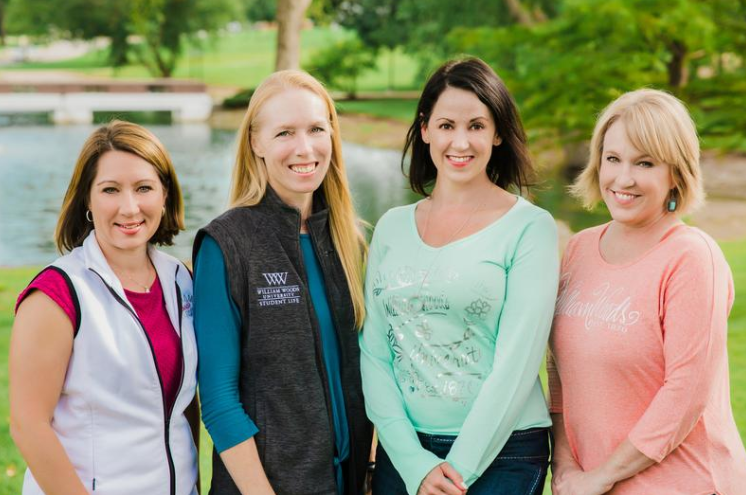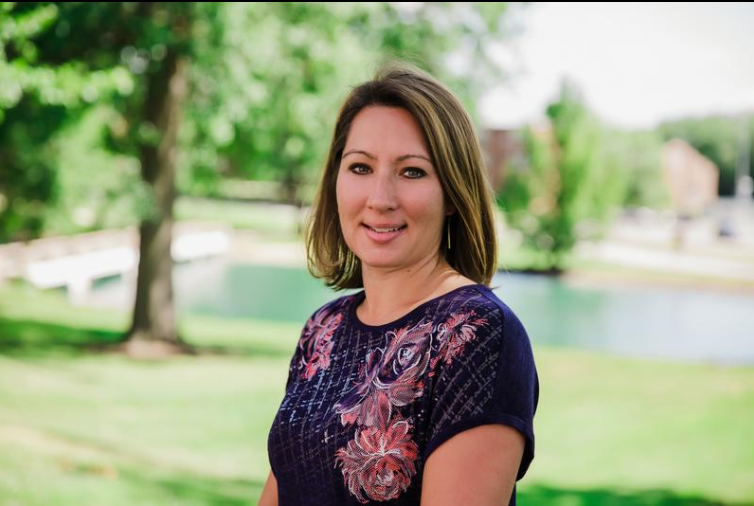Nurses and other health care professionals have been the heroes of the COVID-19 crisis. Taking care of, educating, and helping to prevent the spread of illness on the WWU campus is the role that Nurse Practitioner Kristen Oesch has performed for over 10 years. Never has that role been more critical than now. Reporter Veronica Townsend recently discussed her pivotal campus role with Oesch for the Woods Today.
- What is your role on campus and the benefit of having a nurse practitioner on campus?
I am called the campus nurse, but I am more than just a nurse. I am a nurse practitioner, which means I have a master’s degree in Nursing. When explaining to students and parents what my job is, I tell them my certification is like a physician because I can write prescriptions. I do have a collaboration agreement with a local physician. If there is anything that I am concerned about, I can get in touch with other colleagues too.
Through my abilities and by having our clinic on campus, students, faculty and staff are provided the opportunity to come and get seen during the work week and school day without having to go off campus.
WWU charges a student health fee. When they come and see me, unless it includes a visit to an outside lab or other outside service I do not offer in the clinic, there is no additional charge. Faculty and staff, as of Jan 1, 2020, must pay a minimal copay but it is here on campus where they do not have to travel to their home physician or urgent care.

- As of this writing, 13 WWU students tested positive for the Coronavirus. How is the nurse practitioner’s office educating the campus community about the virus, and is there any information you feel is imperative for the WWU community to know about combatting or preventing the transmission of the virus?
The WWU Health Clinic has been educating the University community by sending frequent email communications, updating the COVID-19 information headline on the WWU webpage, and staying up to date on information provided through social media platforms.
I have been referencing the Center for Disease Control’s guidelines along with the Missouri Department of Health & Senior Services & Callaway County Health Department resources.
Staying home as much as possible is ABSOLUTELY necessary at this time. I cannot voice this enough. We wouldn’t have had as many cases of coronavirus on our campus if individuals would have taken the recommendations of social distancing and stay in place order seriously.
This is a very easily spread virus and will impact many, many individuals. I do not believe we have seen the worst yet. I am available to discuss any COVID-19 concerns via a phone call or virtual meeting.
- The WWU Health Services Office is currently offering virtual visits. How can students and faculty request a virtual visit?
Students and faculty can still access care from the Health Services Office by filling out and submitting the WWU Health Services Virtual Visit form located on the campus portal Owlnet. Once the form is submitted, the individual will be contacted regarding an appointment.
For students not located in the mid-Missouri area, WWU Health Services will not be able to provide an order for COVID-19 testing. For students located outside the mid-Missouri area, it is recommended to contact their primary care physician if experiencing symptoms of the coronavirus.
For any other needs or questions, you may contact clinic operations manager, Jennifer Burton by email at jennifer.burton@williamwoods.edu or you may call the clinic at (573) 592-4222 and leave a voicemail with your name and phone number.
- What is your advice for educating others about staying healthy and preventing illness?
My favorite part of my job is the preventative side because I love to prevent illnesses as much as anything I do.
Prevention measures for illness include hand washing for 20 seconds in water from the sink or using hand sanitizers. Hand washing is number one for personal hygiene and preventing illness. Avoid sharing bodily fluids. Covering your mouth with your elbow when coughing is another preventative measure. Washing hands and covering the mouth when one coughs will prevent spreading of diseases.
Another favorite part is the educational part because this is the timeframe where students are learning to be adults without mom, dad or another adult helping to guide them along the way.
A student can come in for illness, to ask questions about birth control or prevention of illness. This is a great time to educate and give them enough information regarding their health and body to make their own decisions.

- What is one important point you would like to leave with others?
We are a close campus in a small town. I grew up in a small town and I realize that sometimes it seems like everyone knows everyone else’s business. I do want the Fulton community and campus community to know that this is a highly confidential area.
Once you are 18 under Health Insurance Portability and Accountability Act (HIPPA) rules, no one else including parents can call and ask for your information. I am not allowed to give that information that you had come to see me, unless I contacted you and you have given me written permission. Anything that you feel is questionable or of concern that you want to come and talk to me about or to the counselor is strictly confidential and will stay behind the locked door.

